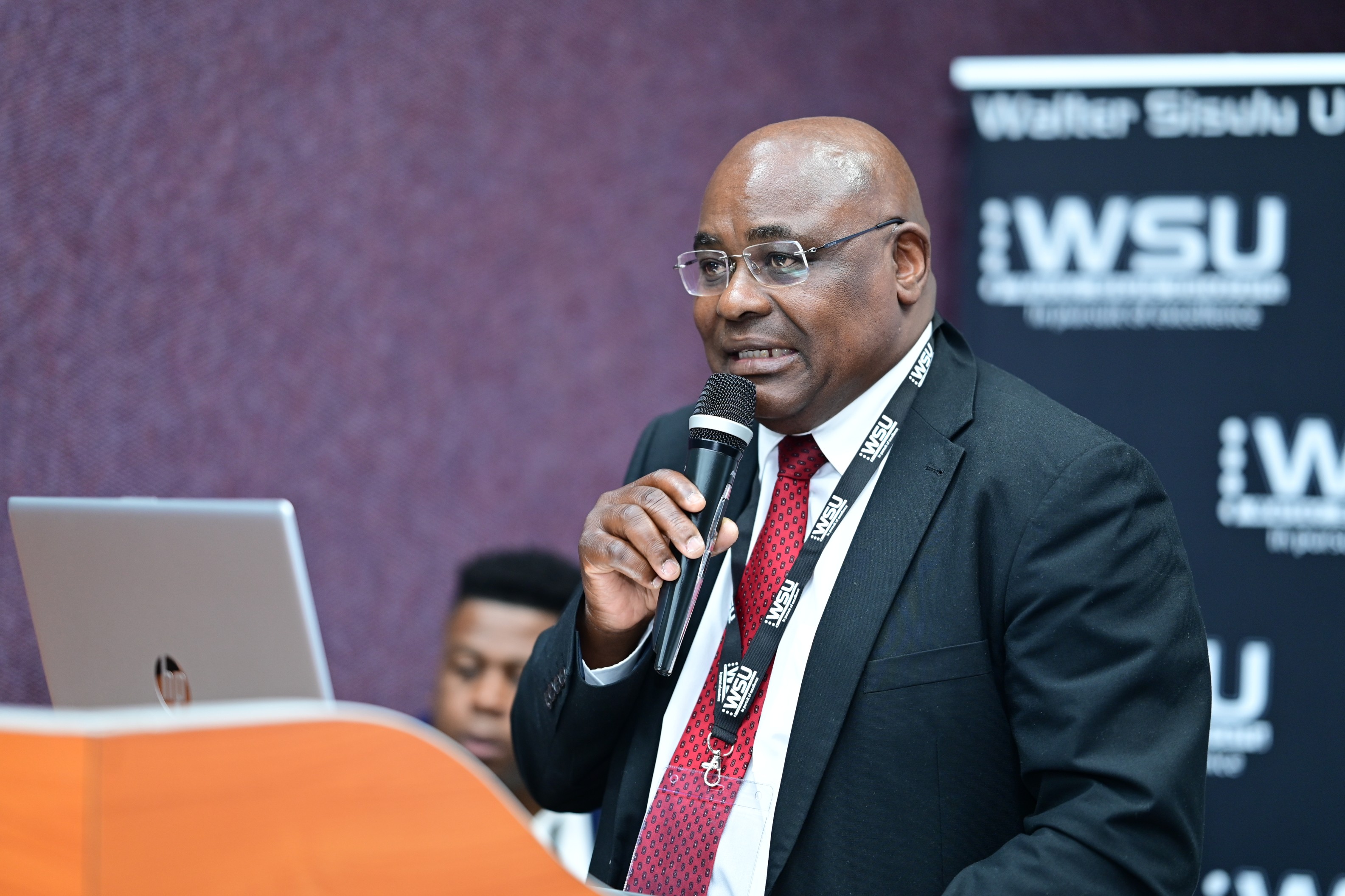4IR TO COMPLEMENT HUMAN INTELLIGENCE

The infusion of the Fourth Industrial Revolution (4IR) in everyday life to elevate and enrich human lives has become popular with Walter Sisulu University academics as they strive to be a technology-infused university.
Professor Ronney Ncwadi from Nelson Mandela University shared his insights with the WSU community on harnessing 4IR technologies for societal and economic betterment.
Amidst an atmosphere packed with intellectual curiosity, Ncwadi, an expert in the world of Economics captivated the audience with a thought-provoking discourse on Innovative economy through skills development.
“According to research, the emergence of a knowledge economy particularly attributed to globalisation and technological advancements has ushered in a wide-ranging debate about the demand for high-level competencies. While there is agreement on the importance of skills as a key agent for economic growth and spare of the knowledge economy, there is far less agreement on which competencies and skills make the difference,” said Ncwadi.
Ncwadi further said that as academics they have to make the difference in their spaces and navigate their way to find which skills and competencies are necessary to make that difference. There is also increased attention given the specific competencies such as being able to use Information Communication Systems (ICTs) to solve problems, to work in teams and supervise students.
“The fourth industrial revolution is on us. It is crucial to understand the benefits and the challenges it imposes on us. 4IR has ushered a way of technological innovations compelling us to unprecedented progress and breakthroughs in Artificial Intelligence, the Internet of Things, automation, data analytics and the potential to revolutionaries various industries such as healthcare, education, manufacturing and agriculture,” added Ncwadi.
Ncwadi added that 4IR has the potential to create new industries, drive economic prosperity and create job opportunities.
“We need innovation in healthcare, transport systems and communication. All these have power to improve the quality of our lives, for individuals and also for the world. Access to telemedicine, smart cities and enhance productivity and lead to better healthcare, increase mobility and higher standards of living,” said Ncwadi.
He said that people are afraid and say 4IR may lead to a high rate of unemployment and lead to people losing jobs. But, as long as technology is not used as a supplement or substitution for human labour, but rather as a complement to human intelligence.
“While we embrace 4IR, we also have to step up the ways and means to combat cybercrimes, data breaches and invasion of privacy. We have to start thinking out of the box, we need to ensure we bridge the digital divide so that we do not have losers and winners, all of us must be winners,” said Ncwadi.
Ncwadi concluded that researchers are not just academics but innovators just as entrepreneurs and that innovation is the centre of economic change that causes creative destruction and excessively revolutionarises the economic structure from within.
By Anita Roji
